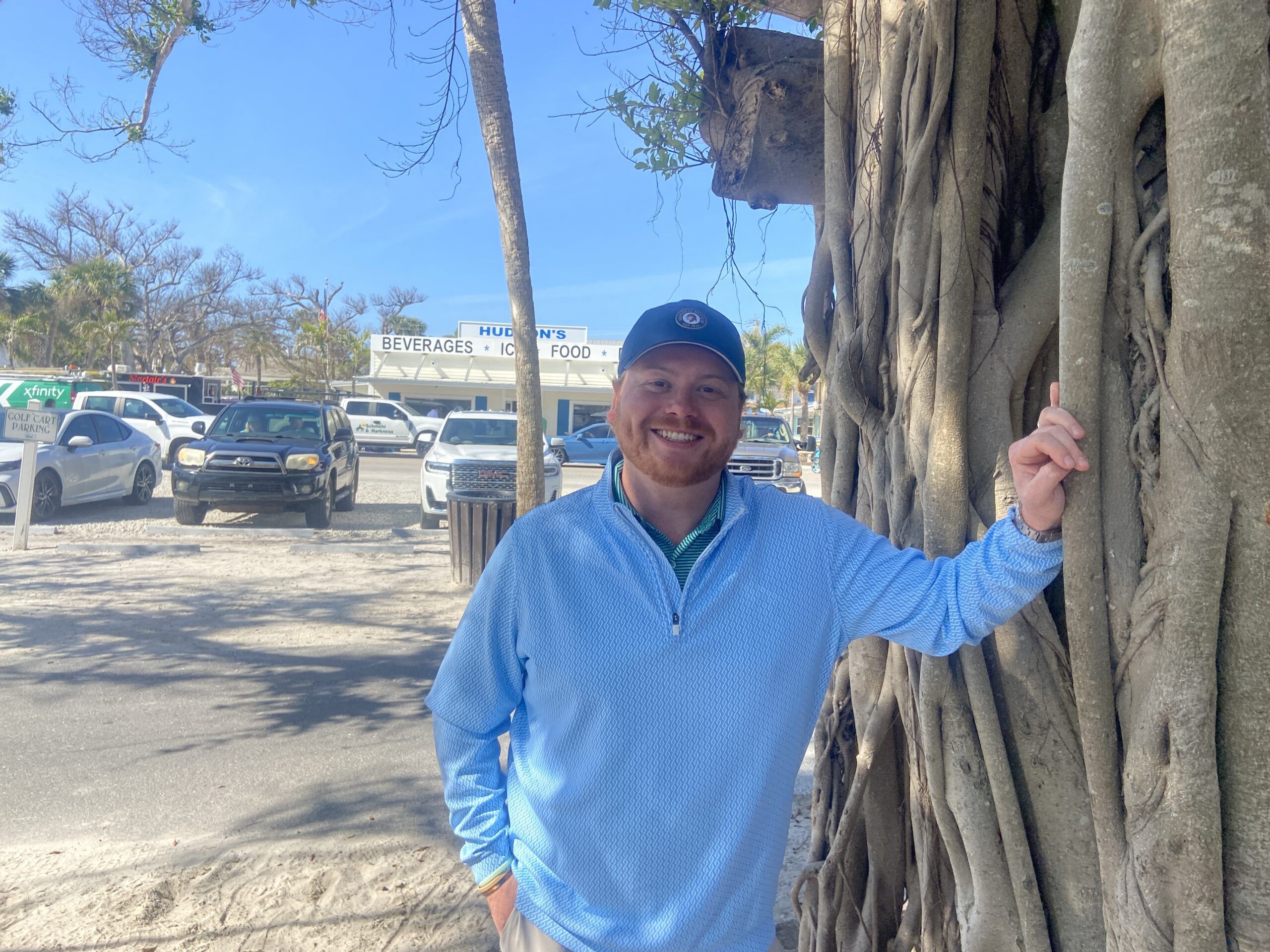Island regular talks journalism trends during family visit to Boca Grande

One of the many regular visitors in recent years to Boca Grande has been former Daily Caller correspondent Henry Rodgers. He happened to be here the week of his leaving journalism, and joining Meta, the owner of Facebook and Instagram, for a public policy position.
He spent eight years covering the Hill, White House, national campaigns, debates, the tumult of riots and COVID. He was there in Charlottesville, watching as Heather Heyer, a young Virginia paralegal, was hit and killed by a car driven by James Alex Fields Jr. Fields, who was later sentenced to life in prison. “It seems like it was so long ago,” Rodgers said. “We were the first people on the scene.”
It was as if he had turned into a war correspondent. “That was the hardest job ever,” Rodgers said. “It was crazy what we were recording and seeing. Cities burning down. Businesses getting destroyed, and all these things.”
Regarding the riots, Rodgers said that there were many bad eggs on both sides. “A lot of people antagonizing, trying to start conflict for no reason, honestly. It would always just lead to people in fights, getting pepper-sprayed.”
He found a cause during that time, supporting local restaurants destroyed by either looters or COVID restrictions. “A lot of places are gone, and that also worked in with COVID, as you know,” Rodgers said. “Most of them have bounced back by now.”
Just as Florida businesses board up for storms, Washington now does the same thing. “When anything happens in D.C.,” said Rodgers, “everyone is boarding up everything.”
The riots stuck with him, however, including getting attacked by Antifa, pepper-sprayed and beaten. Covering it is not easy.
“It’s like a war zone. All the people are wearing masks, covering their face with ski masks. You know who to approach. They don’t like to be interviewed. When it comes to a riot, no one wants to really talk, and the reporter can be assaulted for asking a question. When you start asking them questions no matter what side it is, they get angry and it starts the whole thing. It’s almost like you are provoking them when you are asking the questions, even though you are not trying to. They get very worked up about it.”
He is relieved that the last inauguration went off without violence. “A lot of people are getting along,” Rodgers said. “We will see how that goes.”
He used adjectives like “weird, funny and grotesque,” to describe D.C. Perhaps his most scandalous story that he broke was a tape involving two men in the Judiciary Room. He found out about the story in St. Pete when he was heading to Costco with his wife, Annabel. “I was in the car and got sent a video from an aide to a Maryland congressman. I was driving.” Rodgers said. His wife was the first one to see it. “It’s burned into my brain,” Annabel said. “I looked at him and said, ‘Turn around. This is going to be the biggest story in the country now. You need to go home and write this before anyone else does. We are not going to Costco anymore.’” Rodgers headed home to write. “She was like, ‘Oh my god!’”
Being a straight reporter within a more right-leaning online news organization has been difficult. That is the case for so many national media outlets. “Getting answers on the Green New Deal from Democrats was the hardest thing,” Rodgers said. “But if I got that video, if that was a Republican staffer, we would have published it the same way and treated it like the same thing.”
There is a massive change in reporting and news; the rise of long-form, three-hour interviews and conversations has changed what news is all about. One of Rodgers’s happiest accomplishments was the sideline during COVID of raising money for restaurants, and bringing press attention to their plight, when they were closed by D.C. government.
He set up GoFundMe accounts for Martin’s Tavern in D.C., where Nixon, Sam Rayburn and Lyndon Johnson ate. Rodgers wrote on the GoFundMe page: “If you want to be seated at the place where President John F. Kennedy sat when he proposed to Jackie, you better book weeks in advance. But the long waiting list to get a coveted seat at arguably the most historical restaurant in D.C. is blank due to Mayor Muriel Bowser’s indoor dining ban.”
His godparents are often here, only an hour and a half away. He has made a regular feature of his visits to Boca Grande.
During the recent presidential campaign, he moved to St. Petersburg, Fla. to cover Trump and DeSantis. His regular trips here are often with family friends. Like so many, Boca Grande is an escape. His wife Annabel works remotely and can work from here. “I could go four hours to Palm Beach and four hours to Tallahassee,” Rodgers said.
“Everyone is just walking down the street saying ‘hello, hello,’” Rodgers said. “This is what I imagine heaven is like.”
- New Farlow’s restaurant Chophouse285 anchors Englewood’s Dearborn Street
- Schmaltz & Pepper for All That Jazz
- Charlotte meets on beach access; Placida park project moves forward
- World of mangroves the subject of conservation lecture series talk at Englewood Chamber of Commerce
- Magano at Camera Club talks on light-painting and photography









